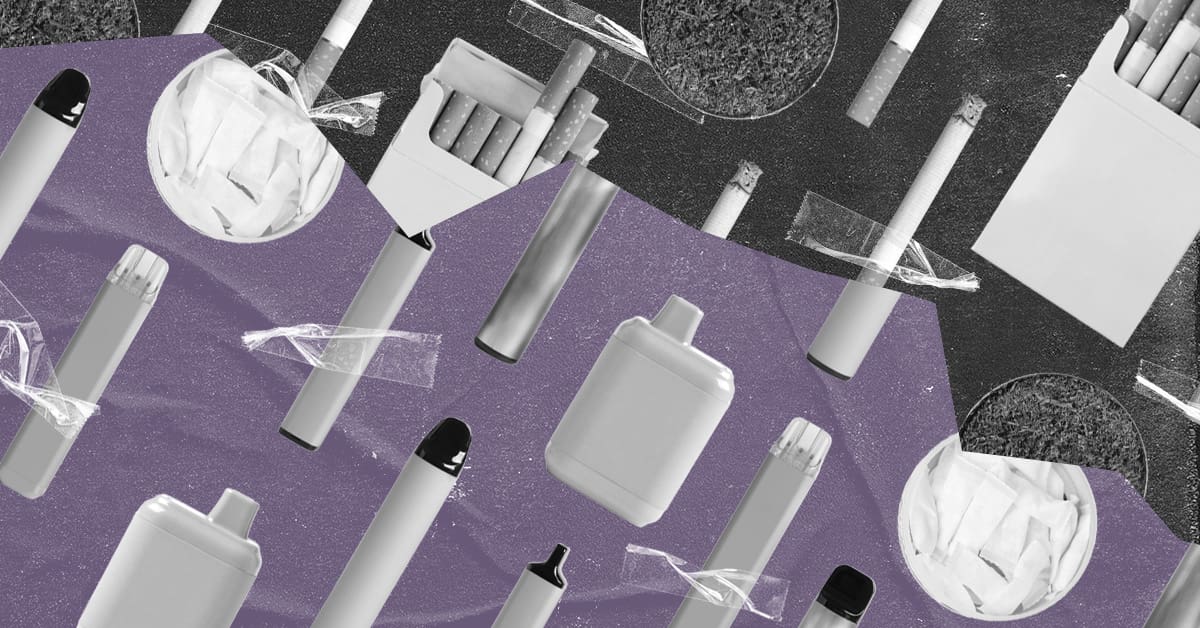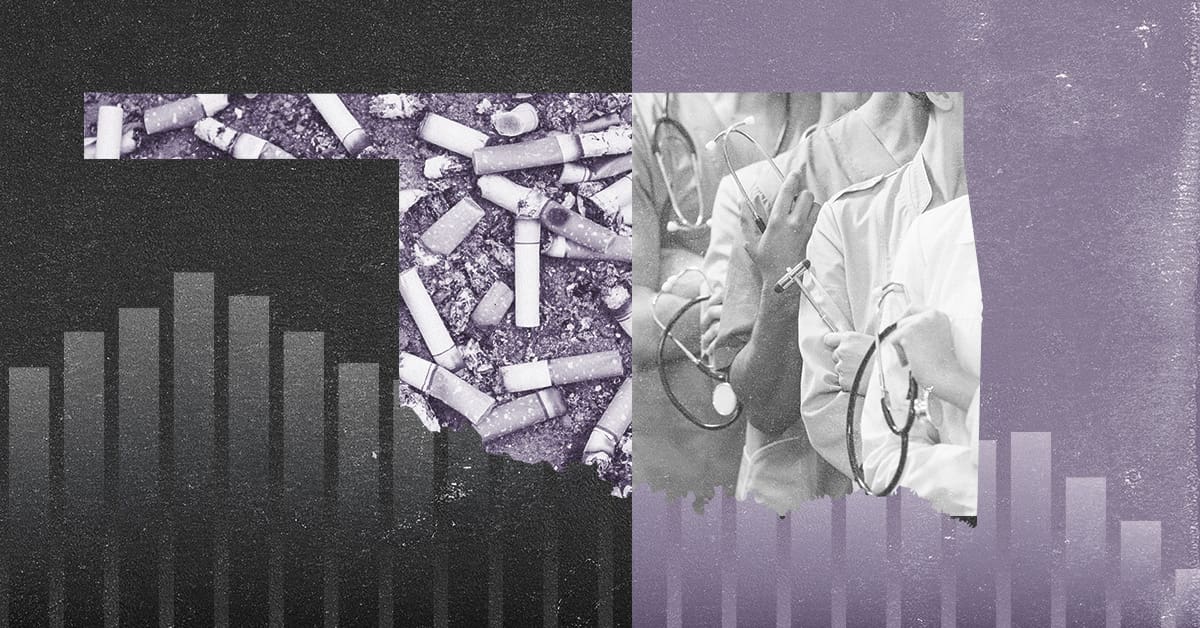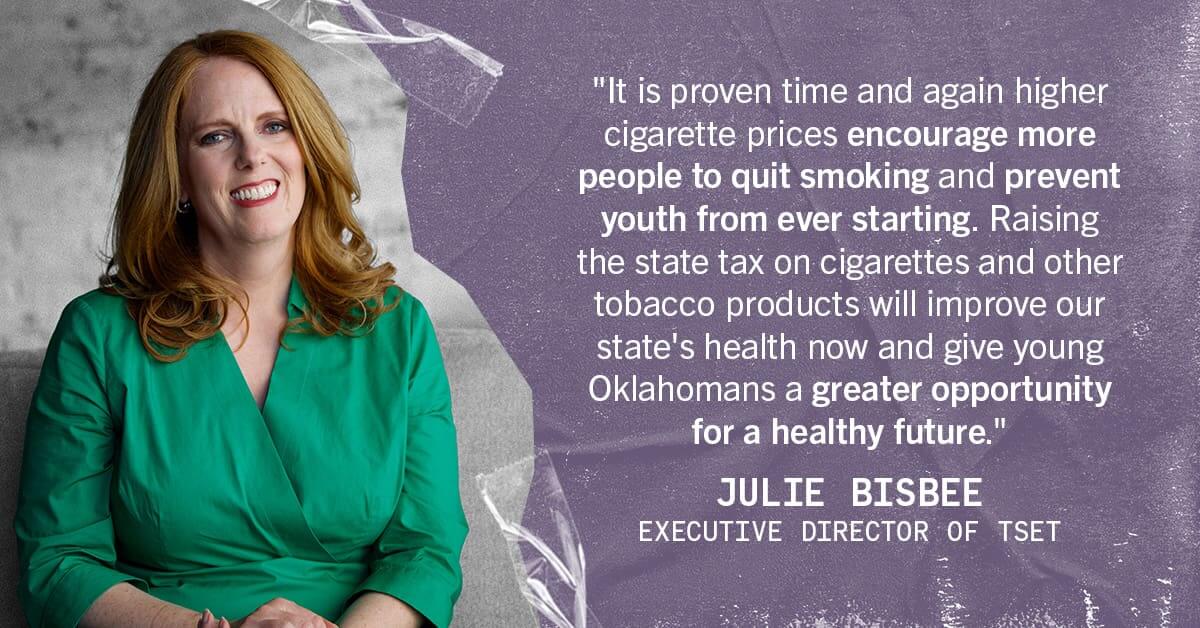The Tobacco Settlement Endowment Trust (TSET) board passed a resolution advocating for an increase to tobacco taxes and to broaden the definition of tobacco products to cover emerging nicotine trends.
Why Should Oklahoma Raise the Tobacco Tax?
- 1. Reduced smoking rates: Higher cigarette prices discourage smoking, decreasing cigarette consumption and reducing the number of youth who start. The tobacco industry often lowers prices with coupons and discounts to make cigarettes more accessible to those who make less money.
- Improved public health: Fewer Oklahomans smoking leads to lower rates of smoking-related diseases, reducing the burden on the healthcare system. Smoking can cause several health complications, such as:
- Heart disease and high blood pressure
- Cancer
- Chronic Obstructive Pulmonary Disease (COPD)
- Lung infections
- Diabetes
Increasing the price of cigarettes will also lower secondhand smoke exposure, an issue that impacts every Oklahoman. We are one of the only states without 100% clean indoor air laws, and Oklahomans are exposed to the dangers of secondhand smoke while on the clock. In the United States alone, secondhand smoke causes thousands of deaths each year.
- Economic benefits: Reduced smoking rates lead to increased productivity and lower healthcare costs for businesses and the state. Smoke-free bars and restaurants usually see the highest boost.

Why Should Oklahoma Broaden the Definition of Tobacco Products?
The tobacco landscape is constantly evolving. As new products, such as vapes and nicotine pouches, hit the market traditional definitions of tobacco no longer apply. By broadening this definition, Oklahoma can ensure new products are subject to the same regulations, taxes and age restrictions as conventional tobacco items. This solution:
- Prevents youth tobacco use: Alternative nicotine products are heavily marketed to teens, especially on social media. This change would create another barrier to access.
- Allows for quicker policy response: A broader definition enables health officials and policymakers to effectively respond to new products entering the market —protecting public health and reducing the risk of nicotine addiction.

The Impact of Previous Increases
Oklahoma has seen significant decreases in tobacco use and increases in tax revenue after tobacco product price increases — most notably in 2004 and 2018.
- After a cigarette price increase in 2004, cigarette salesin Oklahoma dropped by 11% the following year. Smoking rates among vulnerable youth decreased by 23%.
- In 2018, Oklahoma built on the previous successes and raised the tax by $1 per pack, bringing the total to $2.03 per pack.
- Cigarette sales fell by nearly 60 million packs the following year with a 25% drop in sales by July 2019.
- Tax revenue from cigarette sales increased by over $100 million, boosting funds for health care programs outside of TSET.
- By 2022, Oklahoma’s adult smoking rate hit an all-time low of 15.6%, and rates are continuing to drop.
The Impact on Public Health
A ten percent increase in cigarette prices reduces the youth smoking rate by 7% and total cigarette consumption by 4%. Small, incremental changes can quickly make a large impact.

From 2018 to 2023, we saw 30.8% decrease in cigarette consumption.
TSET: Focused on Public Health
TSET, a grant-making state agency, funds various health initiatives across Oklahoma to promote healthy living in schools, communities and beyond. These grants support efforts to improve public health outcomes and enhance the well-being of every Oklahoman. TSET does not receive tobacco tax dollars. Earnings are from a voter-created endowment for health fund grants and programs.
In addition to grants, TSET funds several statewide programs including:
- The Oklahoma Tobacco Helpline: A free, nonjudgmental quit service that helps Oklahomans quit tobacco and live tobacco free.
- Shape Your Future: A public health initiative created to fight obesity in Oklahoma by encouraging better nutrition, increased physical activity, hydration, improved sleep and tobacco-free living.
- The Healthy Youth Initiative: A statewide program dedicated to helping Oklahoma’s youth lead healthier lives by promoting reduced tobacco use, improved nutrition and physical activity.
TSET Executive Director Julie Bisbee emphasizes the importance of this measure: “It is proven time and again that higher cigarette prices encourage more people to quit smoking and prevent youth from ever starting. Raising the state tax on cigarettes and other tobacco products will improve our state’s health now and give young Oklahomans a greater opportunity for a healthy future.”


Creating a Healthier Oklahoma Together
These proposed changes mark a pivotal moment for public health in our state. By increasing the tobacco tax and broadening the definition of tobacco products, we can significantly reduce smoking rates, improve health outcomes and support other aspects of healthy living in Oklahoma.
Here’s how you can get involved to create a healthier, smoke-free and tobacco-free Oklahoma:
- Stay informed: Get up-to-date information on industry news and access to resources for parents, educators and community leaders by signing up for our newsletter.
- Ask for change: Use our template to contact your local legislator or TSET grantee to share your support for increasing the price of tobacco to reduce the harms and keep young people from starting. Your voice matters!
- Become a social influencer: Share information about the benefits of these policies with your friends and family, and on your personal social media accounts using our materials. The more people understand the importance of these changes, the more support we can gather.
- Talk with your kids: If you’re a parent, educator, coach or mentor, talk with the young people in your life about the dangers of nicotine and tobacco.
The path to a healthier Oklahoma starts with all of us. Are you ready to create a healthier Oklahoma?
